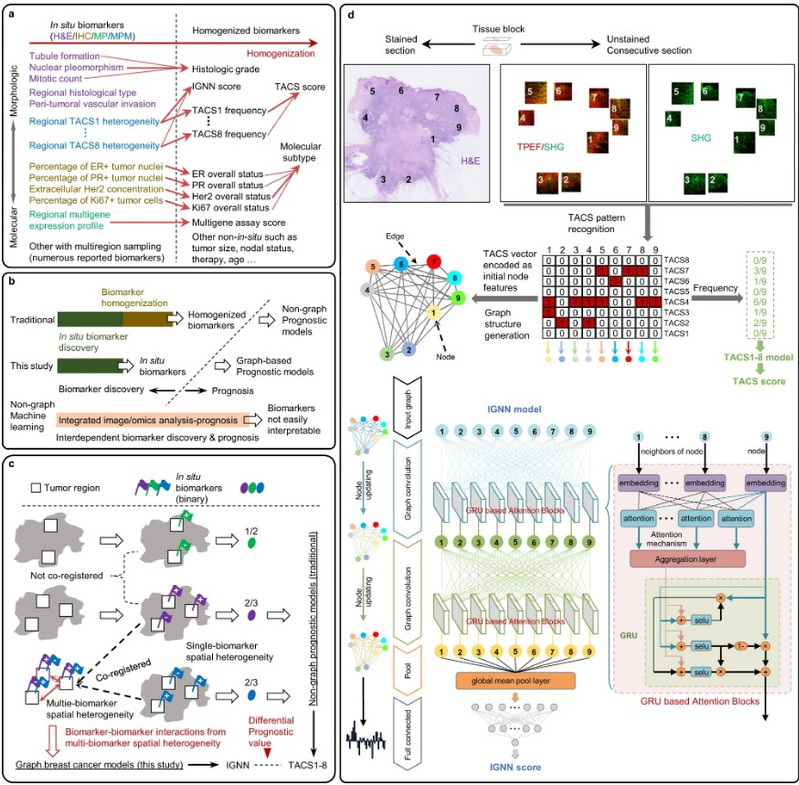Recently, Professor Chen Jianxin and Dr. Li Lianhuang’s team from College of Photonic and Electronic Engineering of FNU, in collaboration with Dr. Tu Haohua’s team from University of Illinois at Urbana-Champaign, have made significant progress in the research on breast cancer prognosis. The research teams developed an intratumor graph neural network (IGNN) model for breast cancer prognosis, established the description and analysis paradigms for irregular Non-Euclidean data, and applied the paradigms to explore and interpret the implicit prognostic interactions among in situ biomarkers in multiple regions of heterogeneous breast tumors. Unlike various machine learning models, currently widely adopted in computational pathology, which obtain prognostic characteristics by inference, the IGNN model carries out graph structured coding and analysis of tumor related collagen characteristics (TACS1-8) obtained from multiphoton microscopy instead of relying on specific in situ biomarkers. The IGNN model reveals the hidden prognostic value of heterogeneous TACSs and achieves accurate and interpretable breast cancer prognosis.
The work, titled “Intratumor graph neural network recovers hidden prognostic value of multi-biomarker spatial heterogeneity”, was published in Nature Communications, one of the top international journals. FNU is the first organization of the paper, with Qiu Lida, a doctoral student of FNU, as the first author, Dr. Kang Deyong and Professor Wang Chuan of Fujian Medical University Union Hospital as the co-first authors, and Dr. Li Lianhuang, Professor Chen Jianxin and Dr. Tu Haohua as the co-corresponding authors. Professor Wu Qingxiang participated in the research. The research was supported by the National Natural Science Foundation of China, the Natural Science Foundation of Fujian Province and other funding agencies.
The paper link: https://www.nature.com/articles/s41467-022-31771-w

(Translated by Chen Wenjia/ Reviewed by Xie Xiujuan)
